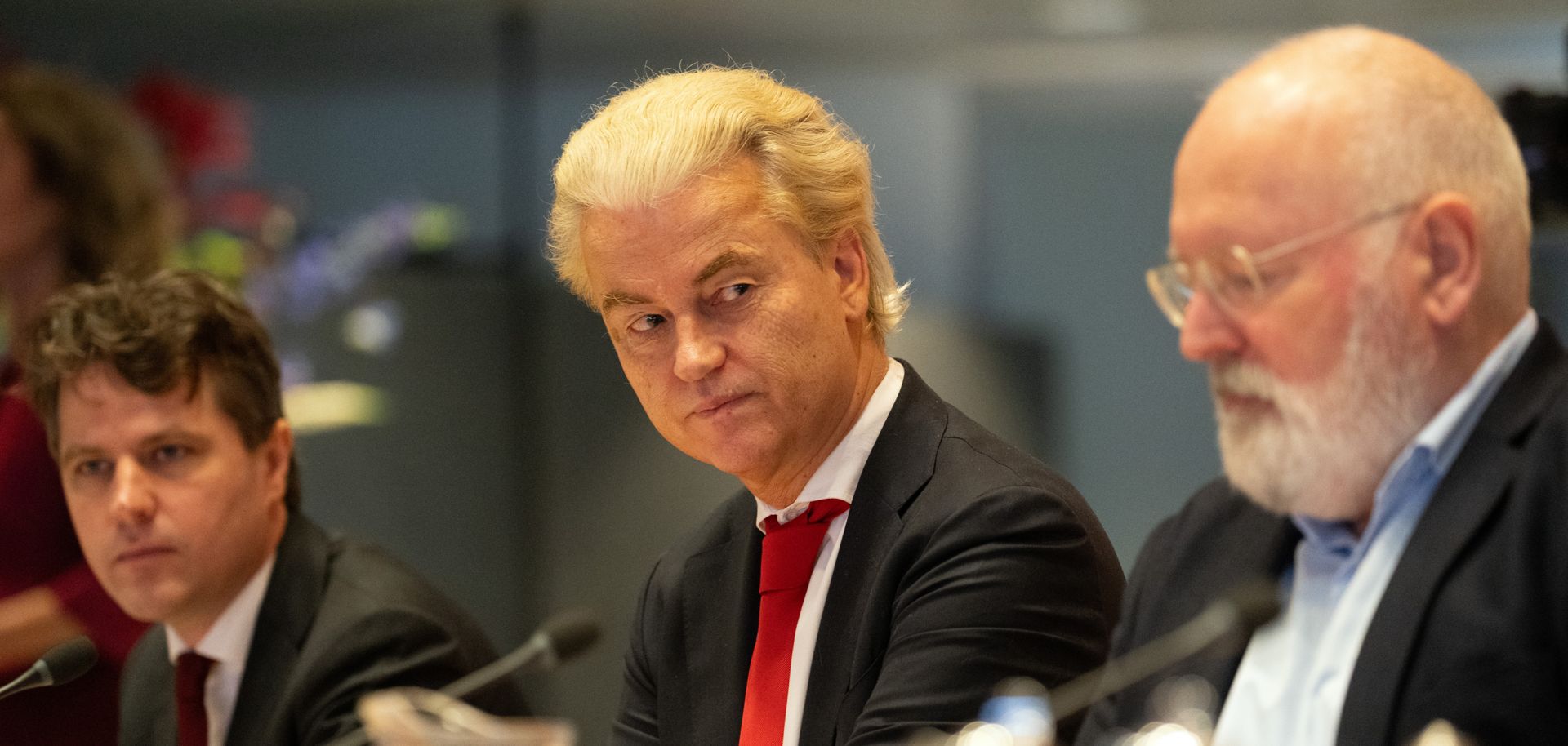SNAPSHOTS
Despite a Far-Right Victory, Constraints Will Moderate the Netherlands' Next Government
Nov 27, 2023 | 22:02 GMT

Geert Wilders (C), leader of the far-right Party for Freedom, sits next to Frans Timmermans (R), leader of the Green Left-Labor Party alliance, and Henri Bontenbal (L), leader of the Christian Democratic Appeal party, during a meeting in the Dutch parliament on Nov. 24, 2023, in The Hague, Netherlands. The party leaders are discussing the formation of a coalition government following Wilders' victory in the Nov. 22 general election.
(Photo by Carl Court/Getty Images)
Subscribe Now
SubscribeAlready have an account?
